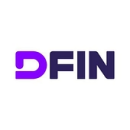For years, data and analytics company Arity fastened its corporate identity to the physical office.
Employees at the transportation-based startup would gather at its headquarters in Chicago, utilizing a space created to facilitate in-person collaboration, and figure out ways to better serve customers. More often than not, brainstorming sessions ended with a whiteboard shrouded in scribbles that defied comprehension.
“It wasn’t uncommon for us to end a formal or impromptu meeting by taking a picture of the whiteboard with someone’s phone to hopefully remember to distribute it later to the team,” Director of People, Finance and Culture Dan Regan said. “In the case of primarily in-person meetings, we often missed the opportunity to get feedback from someone who called in.”
Shifting to a fully remote office on account of the pandemic, however, has resulted in a slew of unintended benefits, Regan said.
Rather than merely enduring the transition to a remote working model, Arity has embraced the advantages of the virtual office to offer its employees greater geographic flexibility and incorporate a wider range of perspectives.
“Our whiteboards have been replaced with software that promotes online collaboration,” Regan continued. “Now our meetings are structured to ensure everyone has an opportunity to provide feedback.”
Eliminating the tyranny of whiteboards is just one way companies are leveraging the opportunities of their remote work capabilities. As Built In Chicago learned through conversations with nine local tech professionals, working remotely is hardly a recipe for a drop in productivity.
Tell us a bit about your current remote workforce. What plans do you have to expand it?
Reverb is an online marketplace dedicated to buying and selling new, used and vintage musical instruments. Since launching in 2013, we’ve grown into a vibrant community of buyers and sellers from around the world who are supported by a team of developers, marketing pros, customer support reps and more.
Our team has been working remotely since the spring of 2020. During that time, we realized that some employees do their best work remotely, some prefer the office environment and others want the flexibility to engage in both. We’ve responded by transitioning to a hybrid office with a mix of fully remote employees, team members who come into the office two to three days per week and people who work in the office full time. This gives our team members the flexibility to work in the environment that works best for them.
Offering these options helps us find new team members who have diverse perspectives and want to help us with our mission of making the world more musical. Reverb’s remote work opportunities are primarily in software engineering, product design and product management roles. But from time to time, we also have open remote roles on other teams.
How do you help remote employees feel connected, engaged and supported?
We’re proud to offer all our team members — no matter where they work — a generous benefits package, which includes employer-paid health benefits, 18 weeks of gender-neutral parental leave and a sabbatical program. We also recently expanded our suite of mental health and emotional well-being programs. Team members and their covered family members can schedule virtual appointments with trained therapists, meet with coaches to develop a customized digital care plan and tap into self-care apps for ’round-the-clock support.
We’ve been very purposeful during our transition to hybrid working.”
Remote employees receive co-working credits and, just like our “flex mode” team members, also get access to IT equipment, additional virtual health and well-being programs, and a home office stipend.
We’ve been very purposeful during our transition to hybrid working, which includes equipping our in-house conference rooms so blended teams can collaborate easily and no one feels left out of discussions. Our managers recently completed training to help them lead remote and hybrid teams, and we are developing communication charters to get input from team members, establish inclusive practices, build alignment and create a thoughtful approach to our new way of working.
Tell us a bit about your current remote workforce. What plans do you have to expand it?
Our team has seen a tremendous amount of growth and success with our remote-first hiring approach. While most of our team at Spark Hire is still based in the Chicagoland area, we have employees in 12 different states, along with the United Kingdom and Australia.
We’re hiring remotely across a wide range of teams, as we’ve maintained efficiency while keeping a positive team rapport. These include roles in engineering, marketing, sales, accounting and customer success.
How do you help remote employees feel connected, engaged and supported?
We have a really strong culture club committee that has continued to help us feel connected in this transition to remote work. The club includes members from each department who meet monthly to craft cross-departmental activities and find creative ways for the whole team to contribute to local charities. It’s provided us with a strong sense of community, even though we’re not physically together. The club has been instrumental in maintaining a positive and present work culture.
We can’t wait until we can get everyone together again, but we still know how to have a good time remotely.”
Slack is our go-to communication tool throughout the day. We engage in one-on-one conversations, start video chats on the fly and have numerous group channels that connect teams, cross-departmental groups and people with special interests. Before the pandemic, our holiday party was one of our favorite events. Being unable to host one the past couple of years, we transitioned to a virtual holiday party. This involves a fast-paced mix of things like trivia, Pictionary, lip-syncing and more. The company sends gift cards to all employees in advance so we can all buy food and drinks. We can’t wait until we can get everyone together again, but we still know how to have a good time remotely.

Tell us a bit about your current remote workforce. What plans do you have to expand it?
Our entire staff is currently working remotely due to the pandemic, but we anticipate a lot of remote work even when it’s safe to return to the office again. About 15 percent of our staff works out of state, but everyone on our staff plans to work remotely at least part time, so we’ve adopted a virtual-first approach to everything we do. Adage Technology has fully embraced remote work, and we’re hiring for most of our roles remotely. Our consultants are interacting with clients virtually 99 percent of the time, so it’s easy for them to be remote. Our developers, designers and project owners at all levels can also be remote positions.
We’ve adopted a virtual-first approach to everything we do.”
How do you help remote employees feel connected, engaged and supported?
Our remote culture reflects our company culture in that we are still very collaborative. Teams handle all of their scrum rituals and meetings virtually, and they make sure to set aside time during the day to check in, ask questions and help each other. We have flexible schedules around our core hours, which makes it easier to connect, no matter where you are. We also use Microsoft Teams for video, phone calls and chat, and we have different Teams channels for various interest groups so people can chat about things like pets, recipes or sports — not just their work projects.
We host a variety of virtual events and activities so employees can still engage socially. Our Monday all-company meetings include five-minute randomized breakout rooms for small group discussions, and we do regular virtual coffee breaks that anyone can join for some chitchat. We also do quarterly virtual events like game nights, scavenger hunts and bingo. We’ve hosted our annual retreat virtually during the pandemic, but we plan to bring all employees in person for that in the future so that we have IRL shared experiences too.
Tell us a bit about your current remote workforce. What plans do you have to expand it?
My team is based in the Bay Area, but everyone has been working remotely since the pandemic. Since then, we have expanded the team to include employees in Europe, South America and other parts of the United States.
How do you help remote employees feel connected, engaged and supported?
I’ve put a lot of effort into keeping the team’s energy, morale and essence going during the pandemic. This includes establishing creative communication channels, conducting regular one-on-one meetings, holding regular all-hands meetings, encouraging health and wellness, providing flexible work hours and finding ways to recognize and celebrate events like birthdays with the team.
A healthy and supportive remote work culture is essential for the success of any remote team.”
Remote workers can find it challenging to engage and often feel disconnected from the larger company culture. That’s why I set up systems to allow Box employees to connect, such as creating Slack channels for virtual water cooler conversations and virtual happy hours to unwind.
Regular all-hands meetings allow us to share a team vision, reflect on the past quarter and let employees ask any questions they may have about leadership. All of this is in service of maintaining a healthy and supportive remote-work culture, which is essential for the success of any distributed team.

Tell us a bit about your current remote workforce. What plans do you have to expand it?
Root has grown to more than 1,200 team members since selling its first policy in 2015, and we now have a presence in at least 31 states. Our distributed workforce is made up of incredible, dedicated and talented people who are passionate about our mission and committed to doing great work.
In 2022, we have plans to expand our workforce with roles that align with our strategic priorities, such as our partnership with Carvana. We are also focused on continuing to differentiate our technology to disrupt the car insurance industry.
Our remote work culture is all about purpose.”
How do you help remote employees feel connected, engaged and supported?
Our remote work culture is all about purpose. We strive to inspire our team members and equip them with the tools and resources they need to feel supported. In doing so, we promote work-life fulfillment and growth opportunities.
At Root, we stay connected via Slack with all of our favorite emojis. We believe that our team members should work where they work best, whether that is at home, in the office or somewhere new. Many team members have taken advantage of this new policy to work near the beach, in the mountains and even on the road. We recently had a team member pack up their things into a van to travel and work from wherever.
Since the pandemic, we have taken advantage of the opportunity to expand our workforce beyond Columbus, Ohio, to tap exceptional talent across the United States. However, as a remote workforce, there are times when our team members want to feel more connected to each other. That is where our employee resources and interest groups play an essential role. Whether a team member is passionate about DIY projects, the environment or being part of the community of women at Root, there is something for everyone here.
Tell us a bit about your current remote workforce. What plans do you have to expand it?
Prior to March 2020, our team was primarily located at our HQ in Chicago. Our space was set up to promote in-person collaboration, and our teams were co-located. As a company, we couldn’t get enough space to whiteboard.
The reality is that, prior to the pandemic, our corporate identity was somewhat tied to our office, and there were some inefficiencies created by our in-person-first culture. Today, Arity is fully remote, which has allowed us to further expand our employee base to broader geographies. It has also resulted in an increased focus on establishing an efficient customer-focused community that creates opportunities for diverse perspectives and flexibility.
The reality is that prior to the pandemic, our corporate identity was somewhat tied to our office.”
How do you help remote employees feel connected, engaged and supported?
Our remote culture focuses on how we approach our work, how we value our employees as individuals and how we interact across our Arity community. We put our customers first through the work we do, we prioritize progress to move quickly and efficiently, and we stay innovative for the future.
We believe that all employees play a key role in creating an inclusive community where we can succeed as our true selves. Our Arity community understands that our diverse perspectives and talents make us stronger, and we take time to appreciate and recognize our employees as individuals and teams. Our recurring all-company recognition meetings spotlight individual and team accomplishments, and we encourage all Arity employees to actively recognize their coworkers in their day-to-day work, whether that’s giving awards in our recognition tool, sending an email or talking live. We’ve also created multiple avenues to build relationships within the Arity community, whether that’s through using new software to promote virtual collaboration, leaders blocking time to let employees “ask me anything,” or making time to highlight and get to know new employees.
Tell us a bit about your current remote workforce. What plans do you have to expand it?
We didn’t plan to have a fully remote workforce. Like most companies, we were forced to adapt to working remotely in early 2020 due to the pandemic. Through the resiliency of our employees, we reconstructed our standard processes, allowing the migration out of the office to be seamless for our clients. There were some major restructuring initiatives already underway, and we were able to continue our efforts through the pandemic. Our department has increased by 30 percent in the past year alone, and we’re hoping to expand another 13 percent this year. We’re focused on our customer service client-facing positions. A background in a finance-related industry is a plus, but hospitality industry workers have also done considerably well in the role. We’re looking for energetic, driven employees who are ready to provide the world-class service Donnelley Financial Solutions is known for.
Through the resiliency of our employees, we reconstructed our standard processes.”
How do you help remote employees feel connected, engaged and supported?
The biggest challenge we’ve faced while going remote has been training and development. We had a formal two-week training session that had always worked in the past, but it no longer had the same outcome. We undervalued just how critical being in the same office was in the learning path. That two-week training plan worked in the office because trainees were physically side-by-side with their mentors and could learn from informal interactions with customers.
We’ve since extended our two-week training plan to an eight-week learning path. The early results from these adjustments have been exceedingly promising. In addition to training, we also have weekly huddles with the team. The huddles allow the entire team to present topics we’d like our teammates to hear. We leverage Microsoft Teams channels to stay connected with what everyone is working on and provide support by troubleshooting issues as a group. We also have regular calls with the senior management team, allowing everyone to hear about big initiatives the company is focused on and, more importantly, provide input.
Tell us a bit about your current remote workforce. What plans do you have to expand it?
The cybersecurity team at NielsenIQ is growing rapidly. We recently hired a number of new team members, and we’re hiring even more.
The team is mostly distributed around the company’s hubs in the Chicago and Tampa areas, but we recognize that talent exists outside of these hubs and have a few team members in other locations.
As the company focuses on migrating its technologies to the cloud, we are looking for engineers who have experience in development, security, and operations; cloud security posture management; protection platforms; and application security.
We recognize that talent exists outside of these hubs and have a few team members in other locations.”
How do you help remote employees feel connected, engaged and supported?
Employee engagement for remote employees is focused in a few areas. We are all remote employees in this era of Covid-19. First, we focus our communications into different funnels, such as JIRA for project management, Microsoft Teams to facilitate how software development and operation tasks are communicated, and email as a catch-all. This is designed to reduce the chaos of incoming requests. Next, our team meetings are focused on SMART goals for our two-week sprints. Each team member shares what they are working on, which allows for awareness of priorities and sharing ideas. Lastly, we schedule time to just connect twice a month. This is a no-work zone, where the intent is to share in life and build esprit de corps.

Tell us a bit about your current remote workforce. What plans do you have to expand it?
Closerlook is fully remote, with the option to come into the office if you live near or are traveling to Chicago or any of the cities where our extended Fishawack Health network has offices. Since the start of the pandemic, we’ve expanded our hiring across the United States. We will continue to recruit nationwide.
We design all of our meetings and staff events with a remote-first lens.”
How do you help remote employees feel connected, engaged and supported?
We’ve worked hard to create a robust virtual culture, with an emphasis on collective care. This starts on day one with a comprehensive virtual onboarding process that covers the ins and outs of our agency, including our history, clients and processes. We design all of our meetings and staff events with a remote-first lens. Employees are encouraged to connect with their teams and manager on a regular basis, both about projects and their personal life, to foster a strong one-on-one culture. Our entire staff gathers for weekly coffee talks — meetings that provide notable updates about the company, new business, client launches and updates, promotions, new hires and more. We also offer virtual yoga twice a week and “beer o’clock” on Friday afternoons so we can come together and discuss anything but work. No week is the same, and our office manager keeps us on our toes with new games and themes each time. Some staff favorites include “guac o’clock” and magic shows.





















